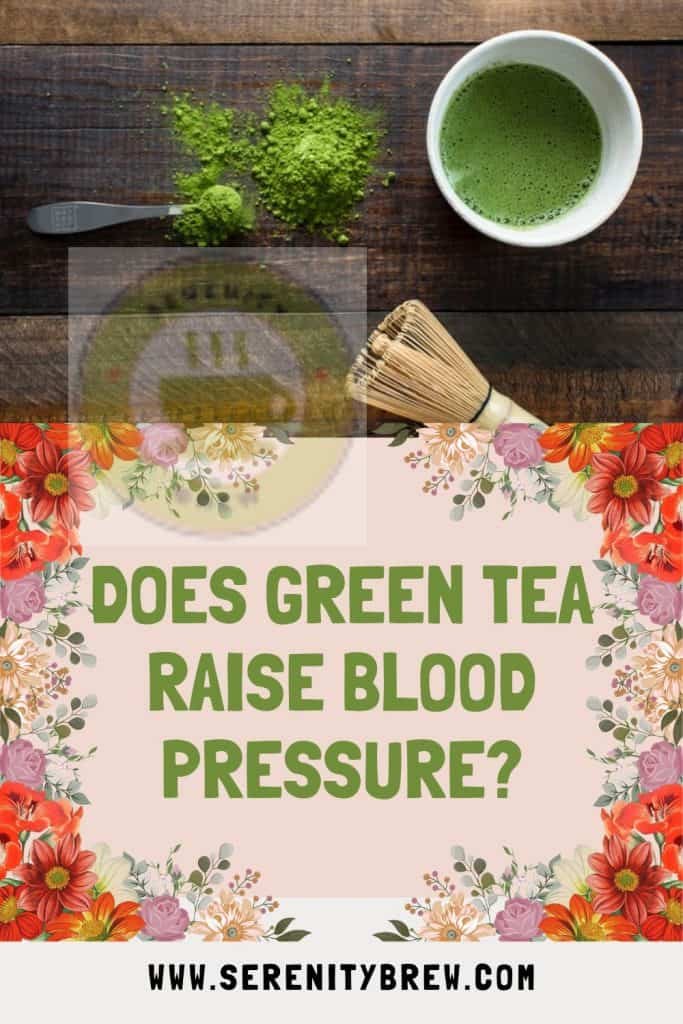
One of the most common recommendations when suffering from hypertension is to minimize the consumption of tea, especially green tea, but does green tea really increase blood pressure?
Below, we will try to answer this question with scientific information and, in addition, we will give you some tips on how to drink green tea to reduce the possibility of it acting by raising your blood pressure.
What is green tea?
We have already talked about it in previous articles, but it is not a bad thing to remember the differences between green tea and other types of tea since, precisely, these characteristics are related to the theme of this article.
Green tea is also made from the leaves of the tea plant, Camellia sinensis. However, unlike what happens with other varieties of tea, in this case the leaves undergo a minimal oxidation process.
As it is a less processed tea, it contains a greater amount of polyphenols, substances with antioxidant potential that fight against free radicals. The latter are molecules that are harmful to health since they can generate oxidative damage in the body, causing premature aging and all kinds of degenerative diseases.
Does green tea raise blood pressure?
To date, it is not possible to answer this question with 100% conclusive data.
The reality is that different investigations have corroborated the beneficial effects of green tea on health, among which are the antibacterial, antioxidant, antiviral, neuroprotective and cholesterol-lowering effect, but the effect of green tea has not been analyzed in sufficient detail. tea consumption on blood pressure. Let’s take a look at the current state of research.
Most of the beneficial properties of green tea are due to its high content of polyphenols, mainly flavanols and flavonols, and its catechin, epigallocatechin-3-gallate (EGCG). In some cases, scientists pointed out that the combination of the caffeine present in green tea with its antioxidants could be responsible for some of its benefits.
However, the results obtained from the data analysis have been inconsistent. What do we mean? Well, for one thing, certain clinical trials concluded that green tea consumption could reduce the level of systolic and diastolic pressure compared to a control group.
However, another experiment found that those who drank green and black tea experienced an increase in blood pressure within 30 minutes of drinking the infusion. It should be noted that at 60 minutes, the changes in pressure were not significant. The conclusion of this study was that caffeine would have a direct relationship with this acute response to tea consumption.
In fact, different specialists have analyzed the relationship between caffeine and increased blood pressure and have determined that there really is a direct relationship between the two: caffeine causes an acute increase in blood pressure in the short term after consumption of the beverage (or food) that contains it, even in young people with no history of blood pressure problems.
So, after looking at all these studies: does green tea raise blood pressure? Unfortunately, it can happen depending on personal predisposition. Although most people would not feel or be affected by this momentary rise in blood pressure, in people with a history of hypertension it could cause problems.
Precautions when drinking green tea
The first precaution to take is that if you have tension problems, consult your doctor about your consumption of green tea and other varieties of tea.
Secondly, in the case of a history of high blood pressure in the family or, simply, if you want to minimize the rise in blood pressure to prevent associated diseases such as cardiovascular problems, it is recommended to avoid its consumption in association with other foods or drinks that can contribute to the rise in tension.
In other words, you should avoid drinking green tea accompanied, for example, by foods rich in sodium, since by combining both elements your blood pressure would have a sharp and rapid rise that could be negative for your body.
On the other hand, you can consume green tea in moderation: one cup per day, for example.
How to drink green tea to prevent blood pressure from rising?

If we base ourselves on the studies that have linked the consumption of caffeine with the rise in blood pressure, one possible action would be to choose varieties of tea with a lower concentration of this exciting substance.
It sounds crazy but it is possible. Did you know that, as a general rule, the younger the tea leaves used to produce green tea, the higher the caffeine content? Thus, coffee varieties that are made with the buds and the leaves that surround them, such as gyokuro, will have more caffeine. A particular case that should be avoided is that of matcha, a powdered tea, which leads to the consumption of the entire leaf and all its caffeine content.
Instead, you can opt for houjicha tea, with its classic roasted flavor, genmaicha, which stands out for its flavor of roasted rice, or bancha, whose production is made with the leaves of the second harvest and, therefore, they have less caffeine.
On the other hand, it is important that you pay attention to your daily caffeine intake. Experts recommend not exceeding 300 mg of caffeine per day. Now, if you like to eat a piece of chocolate at some point in the day, you should take it into consideration when quantifying how much caffeine you consume.
On the other hand, you can infuse the tea leaves and discard the first infused. In this way, the next two or three infusions will contain less caffeine.
If you prefer to further minimize your caffeine intake, opt for a decaf green tea. Yes, it exists! Ask in your trusted store.
And if you still have doubts, go to your trusted doctor. No one better than him or her can guide you to take care of your health.
